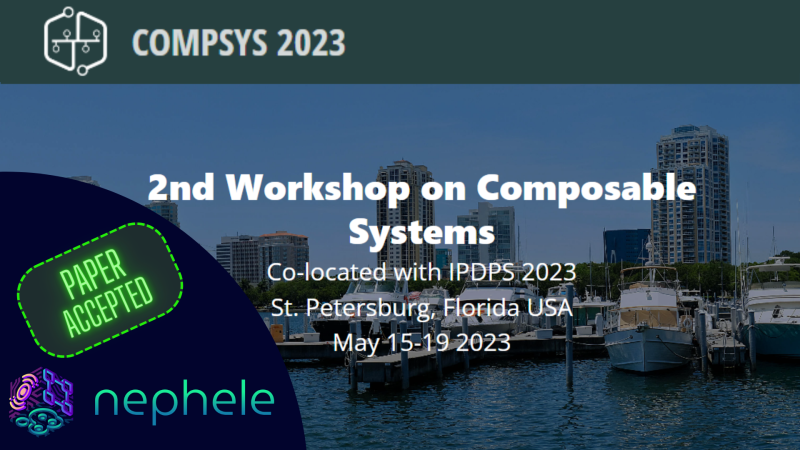
The 2nd Workshop on Composable Systems (COMPSYS 2023) took place on 15th May 2023 in St. Petersburg, Florida, USA. COMPSYS brings together the expertise of researchers and developers from academia and industry on all aspects of composable systems design, management and use.
The paper On the Implications of Heterogeneous Memory Tiering on Spark In-Memory Analytics by Manolis Katsaragakis, Dimosthenis Masouros, Lazarus Papadopoulos, Francky Catthoor and Dimitrios Soudris at National Technical University of Athens, with acknowledgement to NEPHELE was accepted and presented in the framework of this event.
This study considers a multi-tier heterogeneous DRAM/NVM memory system with contrasting access latency, bandwidth and energy consumption capabilities. The paper examines the implications of heterogeneous memory tiering on Spark in-memory analytics and addresses the challenge of the growing demand for efficient and scalable computing solutions that can handle the massive amounts of data generated by modern applications.
Our colleague Dimosthenis Masouros (NTUA, Greece) was also invited to pronounce the talk Towards ML-drive in resource orchestration in disaggregated memory systems: challenges and opportunities. During his speech, Dimostenis explained that the fixed resource capacity of modern Cloud servers poses several challenges regarding the efficient orchestration of computing resources. To alleviate this resource wall challenge, hardware (memory) disaggregation has been proposed as a new design paradigm, where the underlying infrastructure is organized as a pool of heterogeneous resources that can be composed on demand into compute units tailored to workload-specific requirements. However, even though hardware disaggregation offers more fine-grained organization of computing resources, it also introduces new optimization knobs, which have to be properly managed to truly exploit its benefits. ML-driven resource orchestration is a key player in this direction, however, questions like "where", "when" and "how" to use ML for resource orchestration of disaggregated systems are still vague. This talk highlights some of the key research questions and open problems in this area, gives examples of recent research that demonstrate the potential of ML-driven resource orchestration, and provides insights into the exciting new opportunities that ML presents for the future of disaggregated memory systems.